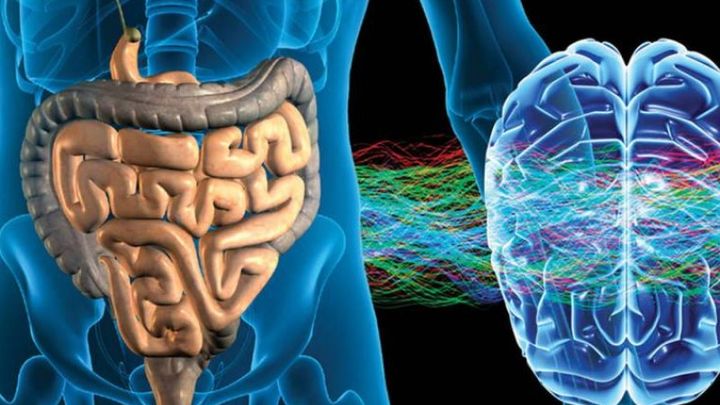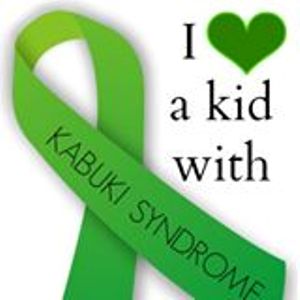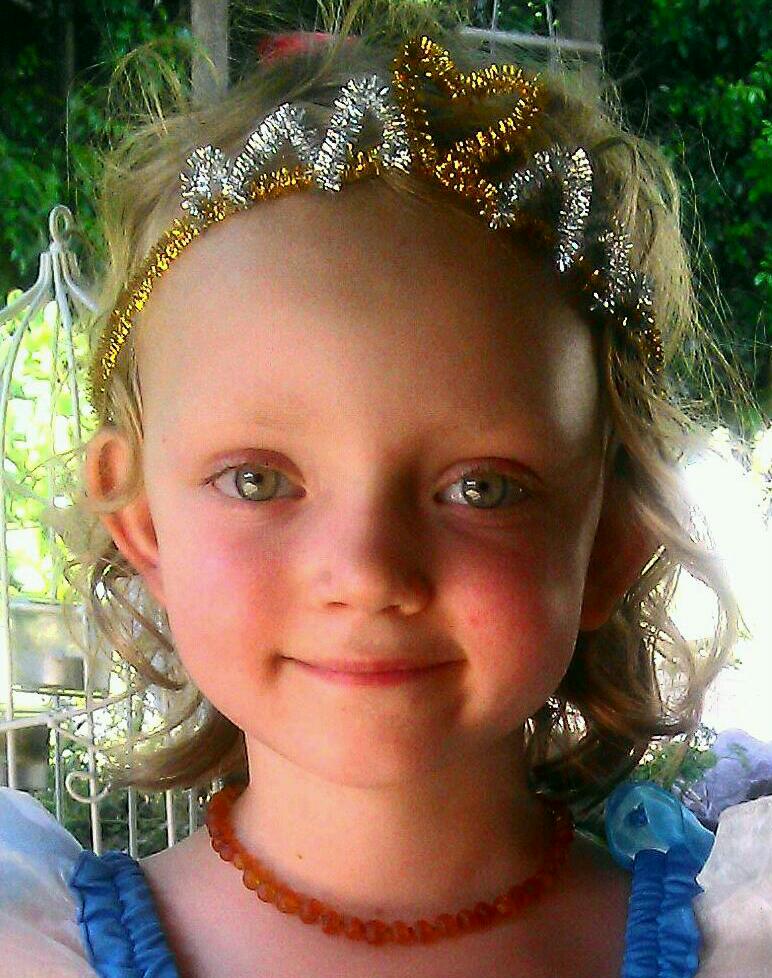
Spreading the Word About Gut Health
Donation protected
Guest Speaker for the Kabuki Syndrome Karnival– Spreading the Word About Gut Health and Optimal Health Outcomes
Please help to sponsor me to be a Guest Speaker at the Kabuki Karnival - a 2 day conference to be held in Wisconsin in August . I will be speaking about dietary interventions for children with Kabuki Syndrome. Specifically, why and how to help heal the gut for long term wellness.
By supporting this campaign you will help me to educate people with Kabuki Syndrome, parents of children with Kabuki syndrome and health professionals about dietary intervention for optimal health, and how this applies to children with Kabuki Syndrome. This has the potential to help improve the quality of lives of hundreds of children with this rare genetic condition. To be in a position to help those children and their families would mean the world to me.
The conference is a not-for-profit event, and attendees are not asked to pay a registration fee. Basically any money raised in order for the conference to go ahead has to be raised by parents of children with Kabuki Syndrome. Because the unfortunate fact is that when it comes to rare diseases, money is very hard to come by.
This means there is very little money to cover the cost of guest speakers. I am running this campaign to help cover the costs of getting me to the event.
If I can't raise the funds I won't be able to attend, as I simply do not have the financial capacity to fund this myself. I'm hoping that with the power of the people we can make this happen!
About Kabuki Syndrome:
Kabuki syndrome is a rare genetic syndrome that affects approximately 1 in 32,000 children. People with the syndrome can have a range of challenges, including gastrointestinal problems, heart and/or kidney problems, immune problems, hyperflexible joints, hearing loss, seizures, hypotonia (or low tone – which affects all aspects of movement and coordination), speech delays, fine and gross motor delays, sensory integration problems, social differences and behavioral challenges (such as problems with emotional regulation and anxiety). Approximately 20% of children with Kabuki syndrome also have a diagnosis of autism, and most of the remaining 80% have some symptoms that are usually associated with autism. Almost all children with Kabuki Syndrome have some form of intellectual impairment.

Why is gut health important?
Most of us know that eating good foods is important for overall health. What many of us don’t know is that eating the right foods has a direct impact on the health of our whole digestive system, including the balance of good and bad bacteria in our gut. Our digestive system is responsible for absorbing nutrients, vitamins and minerals. If we can’t absorb these nutrients properly, our whole body will eventually be affected – including our brain function. Gut function and mood are also related. For example, did you know that 90% of essential neurotransmitters, including serotonin (one of our “happy” chemicals”) are made in the gut? And that approximatel 70% of your immune system is located in your digestive tract? Recent. Healing the gut can be effective in improving the health and functioning of the brain, improving mood issues, immune problems, and improving the health and functioning of our whole bodies
About dietary intervention for Kabuki Syndrome:
Recent scientific research being conducted at John Hopkins University has shown promising results that indicate that intellectual impairment could possibly be prevented or ameliorated in people with Kabuki syndrome through dietary and other biomedical interventions. Simply put - if children with this condition are fed particular foods and/or supplements, they may have a much better clinical outcome. Imagine if all parents of children with Kabuki Syndrome had access to information about dietary intervention that could help improve their child’s life.
About the conference:
The Kabuki Karnival is being held in August 2016 in Wisconsin, USA. The conference brings together individuals with Kabuki syndrome, families, clinicians, and researchers to:
share information about the syndrome;
allow families to network with each other and with professionals;
participate in and support research; and
discuss the ways that we can work together to achieve improved outcomes for individuals with Kabuki syndrome.
About me:

I’m the mother of a beautiful six year old girl, Sophie, who has Kabuki Syndrome.
I first became passionate about diet, nutrition and biomedical intervention more than five years ago. I was desperately searching for ways to help my daughter, and didn’t know where to turn. Sophie had been having issues since birth, but despite numerous visits to hospitals and specialists no-one could give me a diagnosis for her condition. Sophie was suffering severe gastrointestinal distress and feeding issues. She was having up to 15 bowel movements per day, reflux, difficulties with suck and swallow, breast refusal, and pain that woke her every 45 minutes through each and every night. Sophie’s speech and motor milestones were delayed, she wasn’t gaining weight and she was hospitalized twice for failure to thrive. She hated to be cuddled, rarely made eye contact, and was almost impossible to soothe. I didn’t know where to turn or what to do. Without a diagnosis to help us find our way, I realized the only thing I could do was to work with Sophie’s symptoms.
I started down the path of traditional therapies (speech therapy, occupational therapy, physiotherapy), and while these helped in some ways, they did nothing to help with Sophie’s almost constant pain and distress. A friend of mine, who was a naturopath (and also had a child with special needs), suggested that I look into the GAPS diet. A diet that focuses on healing the gut, to improve brain functioning and overall health. And that was the beginning of an amazing journey. A journey that saw Sophie’s gastrointestinal symptoms completely disappear. Sophie started sleeping through the night and making eye contact. She started to enjoy cuddles, and her overall development improved dramatically. All of a sudden my daughter seemed to be comfortable in her body and in this world. She was no longer in constant pain and avoidance mode. It was like having a new child – a happy child, a child who was engaged and curious and eager to learn.
Sophie was diagnosed with Kabuki syndrome about 5 months later – and what a relief (and blow) it was to know what we were dealing with. I knew I couldn’t take away her Kabuki syndrome, but I was determined that my daughter would have the best life she could. I started researching the specific gene defect related to her syndrome, and started Sophie on a biomedical protocol specifically tailored to address that gene mutation.
With a combination of dietary and biomedical intervention my daughter blossomed. Sophie is now aged 6 and attends a mainstream school. She is a bright, thriving, happy little girl.

I have spent the last five years researching dietary and biomedical interventions and communicating with parents, doctors, naturopaths and biomedical practitioners all over the globe, developing and sharing my knowledge so that my daughter can grow and thrive, and so that other families can benefit. I am passionate about sharing my knowledge with other parents so that their children might experience a better quality of life. To be able to speak at this conference and reach so many more parents would be a dream come true.
Some other bits and pieces about me:
I have a degree in Psychology.
I have been working in the field of social and statistical research for more than 20 years, including three years as Principal Policy Advisor for Disability Services Queensland.
I love to write. I have had several articles about Child Development published in Australia’s Leading Parenting Magazine, “Practical Parenting” and I have my own personal blog about my journey with Sophie. I also worked as a staff blogger for Mommies of Miracles, one of the worlds’ largest support networks for parents of children with special needs.
I volunteer a lot of my time to unpaid disability advocacy work, helping parents to learn how to navigate the system, and supporting them through their journey from before diagnosis onwards.
I am currently studying Nutritional Medicine. Once I have completed my studies, I intend to open a holistic practice working with parents of children with special needs, teaching them how to “navigate the system”, providing counseling, and teaching them about optimal nutrition so that their children can lead the happiest and healthiest lives possible.
About the campaign:
The conference is a not-for-profit event, and attendees are not required to pay to attend, This means there is very little money to cover the cost of guest speakers.
Funds from this campaign will be used to pay for:
2 x return airfares for me and my daughter Sophie (who has Kabuki syndrome) to fly from Australia to America
Passports
Visas
Travel Isurance
Car hire.
What happens if insufficient funds are raised to make this trip a reality?
If the fundraising goal is not reached, I won't be able to attend the conference. Should that happen, then each individual donor will be given the opportunity to decide (privately) what they would like me to do with their donation. Options will include a direct refund to the donor, donating the money towards Dr Bjornsson's groundbreaking research into nutrition and Kabuki Syndrome (John Hopkins University), or retaining the money in an account while I continue to fundraise in an attempt to raise enough funds for me to attend as a Guest Speaker in the following year (2017).
A final word:
Spreading the word about nutrition and gut health really has the capacity to help improve the quality of lives of so many children with this rare genetic condition.
Please help me to make this happen! If you can donate - please donate. And please share this GoFundMe campaign with as many people as you possibly can. If we reach enough people, I will be on that plane, spreading the word about gut health, and hopefully making a difference to the lives of many families! To be able to help these families would mean the world to me!
If you would like to read more about my journey with Sophie, including some information on gut health, then please take a look at my blog: www.peekabookabuki.com
Please help to sponsor me to be a Guest Speaker at the Kabuki Karnival - a 2 day conference to be held in Wisconsin in August . I will be speaking about dietary interventions for children with Kabuki Syndrome. Specifically, why and how to help heal the gut for long term wellness.
By supporting this campaign you will help me to educate people with Kabuki Syndrome, parents of children with Kabuki syndrome and health professionals about dietary intervention for optimal health, and how this applies to children with Kabuki Syndrome. This has the potential to help improve the quality of lives of hundreds of children with this rare genetic condition. To be in a position to help those children and their families would mean the world to me.
The conference is a not-for-profit event, and attendees are not asked to pay a registration fee. Basically any money raised in order for the conference to go ahead has to be raised by parents of children with Kabuki Syndrome. Because the unfortunate fact is that when it comes to rare diseases, money is very hard to come by.
This means there is very little money to cover the cost of guest speakers. I am running this campaign to help cover the costs of getting me to the event.
If I can't raise the funds I won't be able to attend, as I simply do not have the financial capacity to fund this myself. I'm hoping that with the power of the people we can make this happen!
About Kabuki Syndrome:
Kabuki syndrome is a rare genetic syndrome that affects approximately 1 in 32,000 children. People with the syndrome can have a range of challenges, including gastrointestinal problems, heart and/or kidney problems, immune problems, hyperflexible joints, hearing loss, seizures, hypotonia (or low tone – which affects all aspects of movement and coordination), speech delays, fine and gross motor delays, sensory integration problems, social differences and behavioral challenges (such as problems with emotional regulation and anxiety). Approximately 20% of children with Kabuki syndrome also have a diagnosis of autism, and most of the remaining 80% have some symptoms that are usually associated with autism. Almost all children with Kabuki Syndrome have some form of intellectual impairment.

Why is gut health important?
Most of us know that eating good foods is important for overall health. What many of us don’t know is that eating the right foods has a direct impact on the health of our whole digestive system, including the balance of good and bad bacteria in our gut. Our digestive system is responsible for absorbing nutrients, vitamins and minerals. If we can’t absorb these nutrients properly, our whole body will eventually be affected – including our brain function. Gut function and mood are also related. For example, did you know that 90% of essential neurotransmitters, including serotonin (one of our “happy” chemicals”) are made in the gut? And that approximatel 70% of your immune system is located in your digestive tract? Recent. Healing the gut can be effective in improving the health and functioning of the brain, improving mood issues, immune problems, and improving the health and functioning of our whole bodies
About dietary intervention for Kabuki Syndrome:
Recent scientific research being conducted at John Hopkins University has shown promising results that indicate that intellectual impairment could possibly be prevented or ameliorated in people with Kabuki syndrome through dietary and other biomedical interventions. Simply put - if children with this condition are fed particular foods and/or supplements, they may have a much better clinical outcome. Imagine if all parents of children with Kabuki Syndrome had access to information about dietary intervention that could help improve their child’s life.
About the conference:
The Kabuki Karnival is being held in August 2016 in Wisconsin, USA. The conference brings together individuals with Kabuki syndrome, families, clinicians, and researchers to:
share information about the syndrome;
allow families to network with each other and with professionals;
participate in and support research; and
discuss the ways that we can work together to achieve improved outcomes for individuals with Kabuki syndrome.
About me:

I’m the mother of a beautiful six year old girl, Sophie, who has Kabuki Syndrome.
I first became passionate about diet, nutrition and biomedical intervention more than five years ago. I was desperately searching for ways to help my daughter, and didn’t know where to turn. Sophie had been having issues since birth, but despite numerous visits to hospitals and specialists no-one could give me a diagnosis for her condition. Sophie was suffering severe gastrointestinal distress and feeding issues. She was having up to 15 bowel movements per day, reflux, difficulties with suck and swallow, breast refusal, and pain that woke her every 45 minutes through each and every night. Sophie’s speech and motor milestones were delayed, she wasn’t gaining weight and she was hospitalized twice for failure to thrive. She hated to be cuddled, rarely made eye contact, and was almost impossible to soothe. I didn’t know where to turn or what to do. Without a diagnosis to help us find our way, I realized the only thing I could do was to work with Sophie’s symptoms.
I started down the path of traditional therapies (speech therapy, occupational therapy, physiotherapy), and while these helped in some ways, they did nothing to help with Sophie’s almost constant pain and distress. A friend of mine, who was a naturopath (and also had a child with special needs), suggested that I look into the GAPS diet. A diet that focuses on healing the gut, to improve brain functioning and overall health. And that was the beginning of an amazing journey. A journey that saw Sophie’s gastrointestinal symptoms completely disappear. Sophie started sleeping through the night and making eye contact. She started to enjoy cuddles, and her overall development improved dramatically. All of a sudden my daughter seemed to be comfortable in her body and in this world. She was no longer in constant pain and avoidance mode. It was like having a new child – a happy child, a child who was engaged and curious and eager to learn.
Sophie was diagnosed with Kabuki syndrome about 5 months later – and what a relief (and blow) it was to know what we were dealing with. I knew I couldn’t take away her Kabuki syndrome, but I was determined that my daughter would have the best life she could. I started researching the specific gene defect related to her syndrome, and started Sophie on a biomedical protocol specifically tailored to address that gene mutation.
With a combination of dietary and biomedical intervention my daughter blossomed. Sophie is now aged 6 and attends a mainstream school. She is a bright, thriving, happy little girl.

I have spent the last five years researching dietary and biomedical interventions and communicating with parents, doctors, naturopaths and biomedical practitioners all over the globe, developing and sharing my knowledge so that my daughter can grow and thrive, and so that other families can benefit. I am passionate about sharing my knowledge with other parents so that their children might experience a better quality of life. To be able to speak at this conference and reach so many more parents would be a dream come true.
Some other bits and pieces about me:
I have a degree in Psychology.
I have been working in the field of social and statistical research for more than 20 years, including three years as Principal Policy Advisor for Disability Services Queensland.
I love to write. I have had several articles about Child Development published in Australia’s Leading Parenting Magazine, “Practical Parenting” and I have my own personal blog about my journey with Sophie. I also worked as a staff blogger for Mommies of Miracles, one of the worlds’ largest support networks for parents of children with special needs.
I volunteer a lot of my time to unpaid disability advocacy work, helping parents to learn how to navigate the system, and supporting them through their journey from before diagnosis onwards.
I am currently studying Nutritional Medicine. Once I have completed my studies, I intend to open a holistic practice working with parents of children with special needs, teaching them how to “navigate the system”, providing counseling, and teaching them about optimal nutrition so that their children can lead the happiest and healthiest lives possible.
About the campaign:
The conference is a not-for-profit event, and attendees are not required to pay to attend, This means there is very little money to cover the cost of guest speakers.
Funds from this campaign will be used to pay for:
2 x return airfares for me and my daughter Sophie (who has Kabuki syndrome) to fly from Australia to America
Passports
Visas
Travel Isurance
Car hire.
What happens if insufficient funds are raised to make this trip a reality?
If the fundraising goal is not reached, I won't be able to attend the conference. Should that happen, then each individual donor will be given the opportunity to decide (privately) what they would like me to do with their donation. Options will include a direct refund to the donor, donating the money towards Dr Bjornsson's groundbreaking research into nutrition and Kabuki Syndrome (John Hopkins University), or retaining the money in an account while I continue to fundraise in an attempt to raise enough funds for me to attend as a Guest Speaker in the following year (2017).
A final word:
Spreading the word about nutrition and gut health really has the capacity to help improve the quality of lives of so many children with this rare genetic condition.
Please help me to make this happen! If you can donate - please donate. And please share this GoFundMe campaign with as many people as you possibly can. If we reach enough people, I will be on that plane, spreading the word about gut health, and hopefully making a difference to the lives of many families! To be able to help these families would mean the world to me!
If you would like to read more about my journey with Sophie, including some information on gut health, then please take a look at my blog: www.peekabookabuki.com
Organizer
Kathy Reed
Organizer
Griffin, QLD